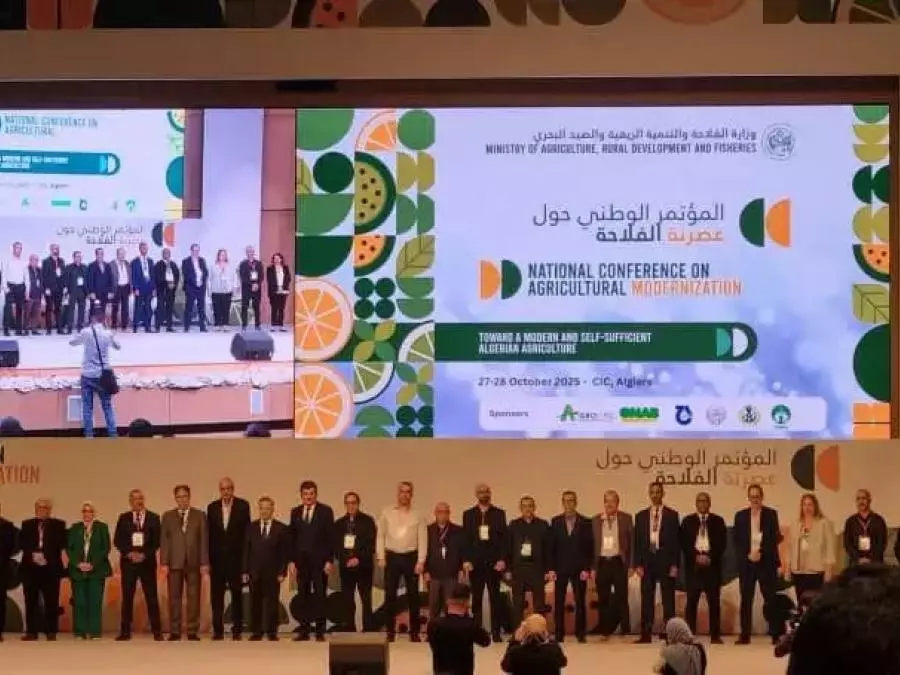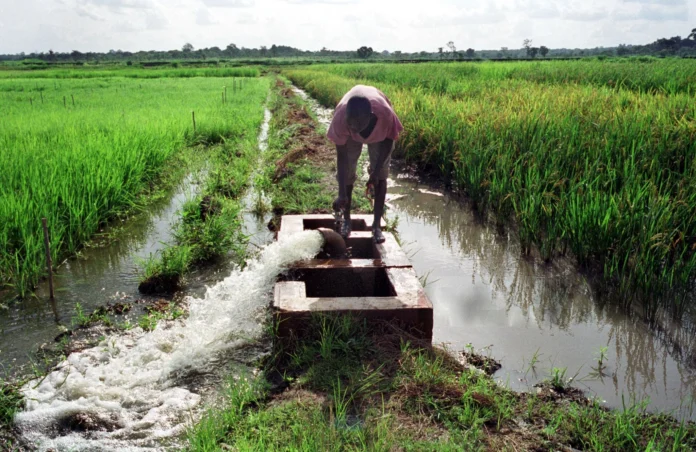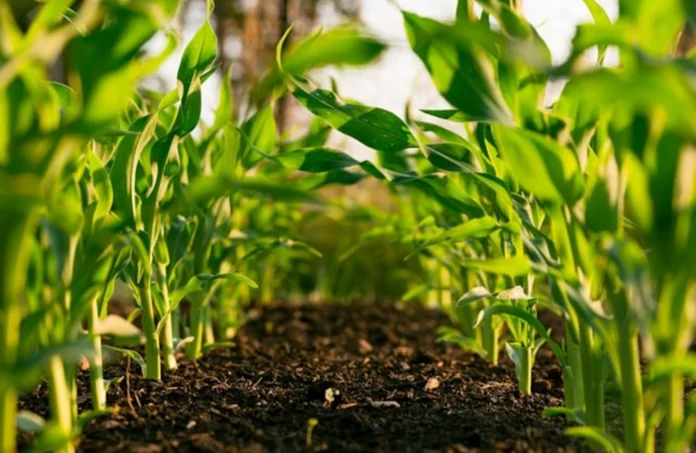Arabfields, Algiers, Algeria — A national conference on agricultural modernization concluded Tuesday evening with the adoption of sweeping recommendations aimed at transforming Algeria’s farming sector through comprehensive digitization, advanced irrigation techniques, and the establishment of specialized national hubs for domestic seed production.
The closing ceremony, attended by Minister of Agriculture, Rural Development, and Fisheries Yacine El-Mahdi Oualid, underscored the urgent need to scale up successful initiatives, particularly in boosting cereal yields, while advocating for the creation of active marketing and service cooperatives focused on seeds, fertilizers, and agricultural machinery.

Experts and industry professionals emphasized the critical importance of widespread adoption of high-yield seeds tailored to local conditions amid escalating climate challenges. They called for enhanced support and promotion of pilot farms dedicated to seed production to ensure resilience and productivity.
To facilitate this shift, participants recommended updating legislative and regulatory frameworks governing seed production, marketing, and certification. They also urged greater recognition of proven successes by national farmers and investors across various crop sectors through targeted communication and awareness campaigns.
In the vital oilseed sector, delegates highlighted the need for intensive training and ongoing support for farmers and investors to bolster national food security.
The conference further advocated for the broad integration of modern practices via automation across production and operational processes. A flagship proposal emerged for launching a national smart agriculture program in collaboration with universities, research centers, and innovative startups.
Additional measures included incentivizing startups to develop water-efficient irrigation solutions, strengthening the domestic strategy for producing irrigation equipment, promoting the agricultural use of treated wastewater, and establishing an observatory for steppe regions. Recommendations also encompassed creating agricultural technology incubators, leveraging data from the Algerian Space Agency (ASAL), backing young entrepreneurs, piloting projects across provinces and crop types, and refining financing mechanisms.
On land issues, attendees pushed for stronger regulatory measures to encourage agricultural investment and rural development. The recommendations extended to organizing markets to balance supply and demand, enhancing national competitiveness, expanding manufacturing and storage capacities, and providing robust support for exports and international exporters.
These multifaceted proposals reflect a consensus on the imperative for systemic reform to position Algerian agriculture as a more efficient, sustainable, and self-reliant pillar of the economy.












